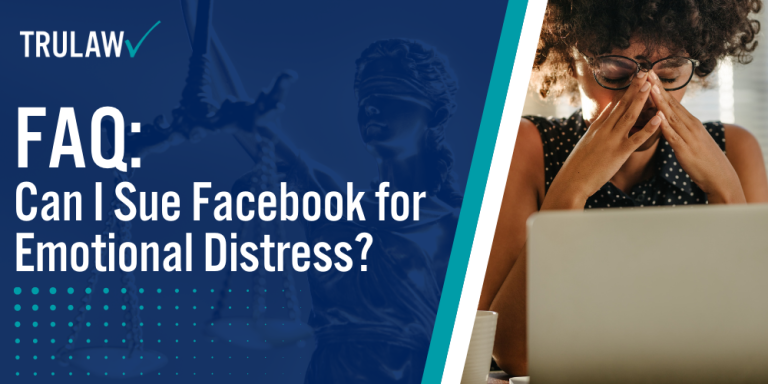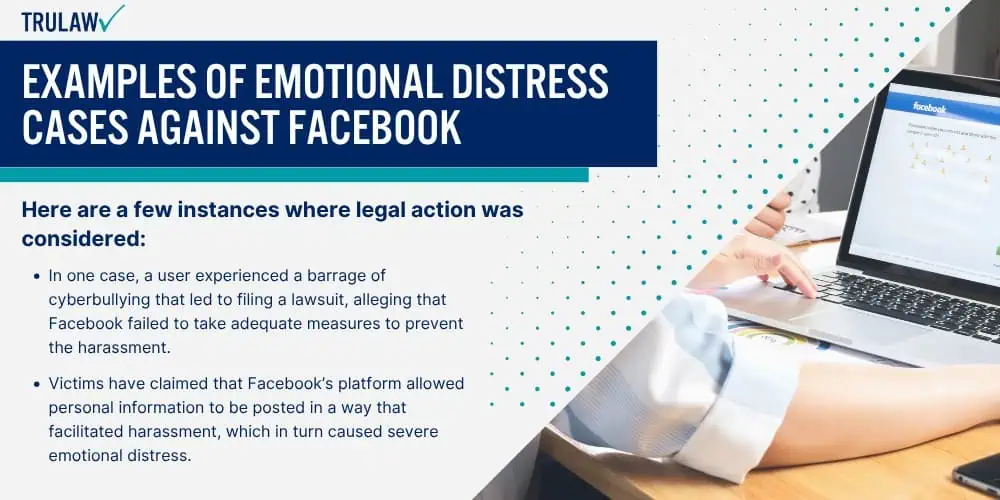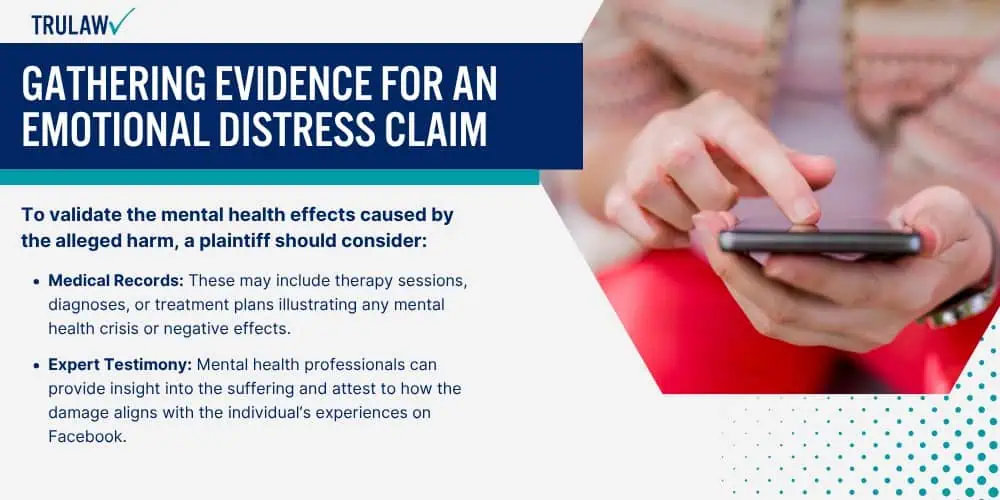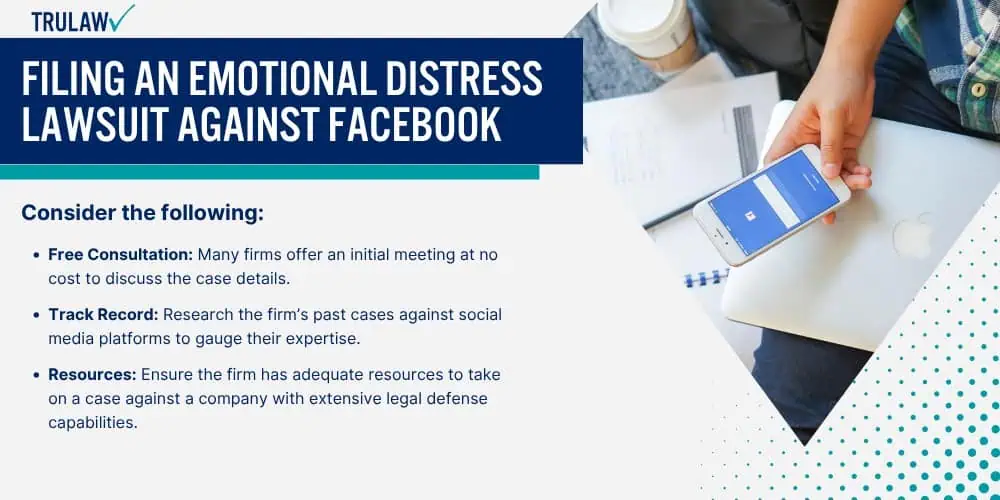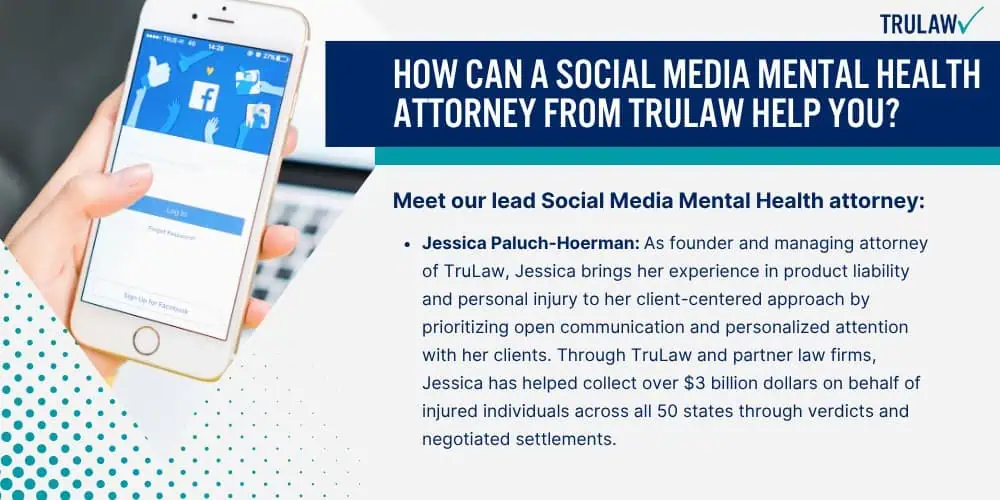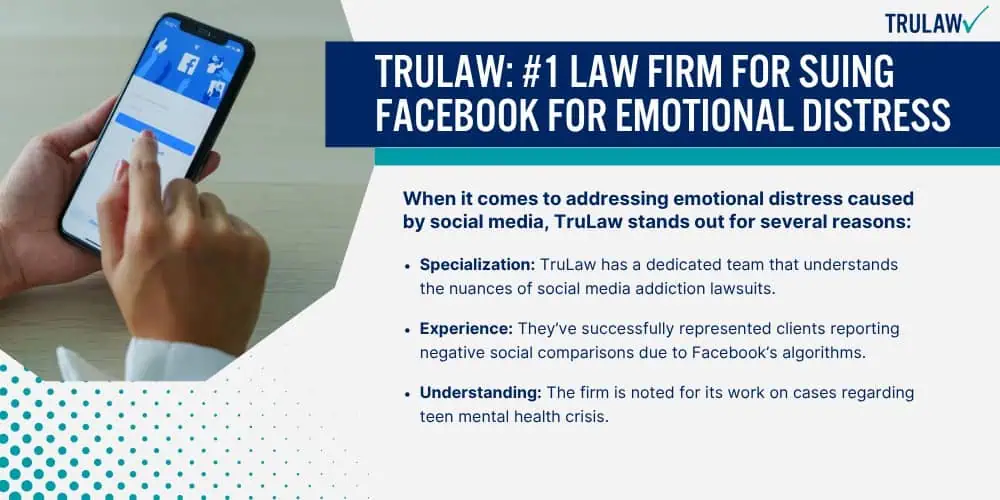Understanding the foundational elements and potential challenges is imperative when investigating potential legal action for emotional distress.
This part of the article focuses on what’s required to establish a case and the difficulties one might face, especially when intending to sue social media platforms.
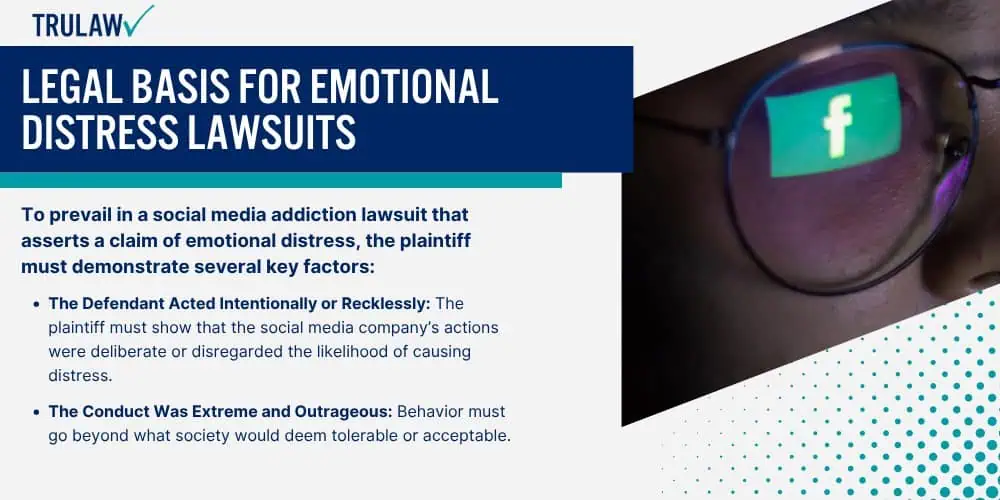
Elements Required to Prove Emotional Distress
In the context of social media addiction lawsuits, emotional distress claims hinge on the ability to prove the social media platform’s culpability for causing harm.
To prevail in a social media addiction lawsuit that asserts a claim of emotional distress, the plaintiff must demonstrate several key factors:
- The Defendant Acted Intentionally or Recklessly: The plaintiff must show that the social media company’s actions were deliberate or disregarded the likelihood of causing distress.
- The Conduct Was Extreme and Outrageous: Behavior must go beyond what society would deem tolerable or acceptable.
- Causation of Emotional Distress: There must be a clear link between the actions of the defendant and the emotional distress suffered by the plaintiff.
- Evidence of Actual Suffering: The plaintiff needs to prove they experienced verifiable emotional distress, which may include anxiety, depression, and other psychological effects.
Challenges in Suing Social Media Platforms
Suing social media platforms for emotional distress presents unique challenges.
While users may feel significantly harmed by content or interactions on these platforms, legal hurdles can make it difficult to hold the companies themselves accountable.
When attempting to sue social media companies for emotional distress, plaintiffs face distinct hurdles:
- Section 230 of the Communications Decency Act: Provides social media platforms with immunity from liability for the content posted by their users.
- Defining the Scope of Outrageous Behaviour: It can be challenging for a plaintiff to prove that social media usage and the platform’s actions reach the level of extreme and outrageous conduct.
- Proving Causation: Establishing a direct link between the platform’s actions and the emotional distress claimed can be complex.
- First Amendment Protections: Social media online platforms often claim protection under free speech provisions, which can complicate legal arguments against their practices.
